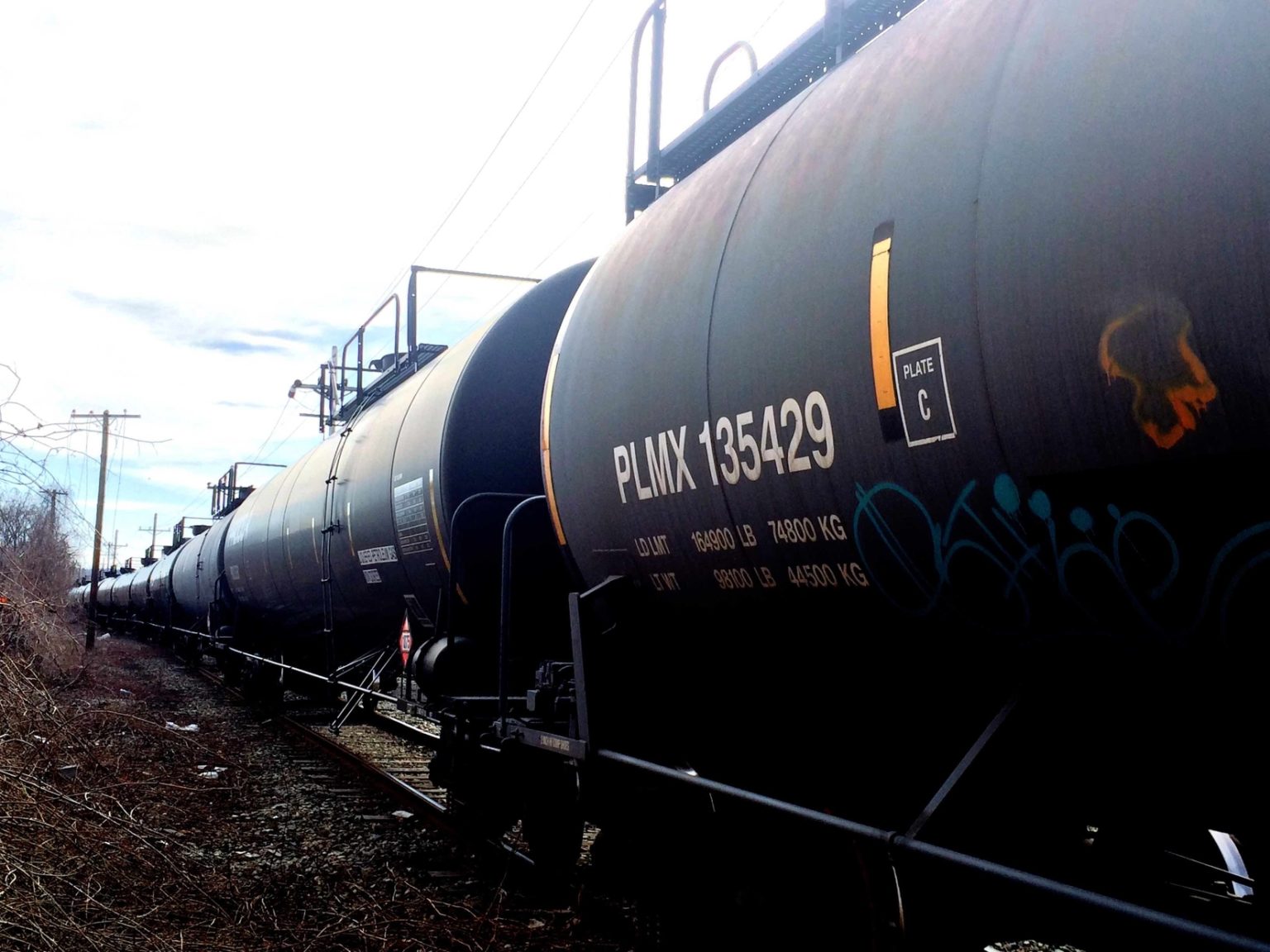It’s hard to keep up with the flood of news these days. Here’s your weekly round-up of news not to miss from DeSmog.
Justin Mikulka has been on the oil train beat for years. He’s documented how the oil boom and pipeline bottleneck in the Bakken Shale has led to more, longer, and heavier trains shuttling oil across North America and how various factors also have led to another type of boom: the literal “boom” of exploding oil trains. (In fact, train operators have given them the nickname “bomb trains.”)
This week, Mikulka writes about the latest oil train incident, this time involving a BNSF train carrying tar sands oil from Alberta, Canada, across northwestern Iowa.
While it fortunately resulted in no fire or explosion, the June 22 derailment did release an estimated 230,000 gallons of oil into a flooded Iowa river.
Of particular note is the fact that the Iowa oil train crash is the first one involving the new, safer DOT-117R rail tank cars, which were supposed to improve the safety of oil trains.
China and West Virginia: A Fracking-to-Plastics Dream in Appalachia
The shale oil and gas industry, fueled by fracking, is helping pump record volumes of production in the U.S. But with all those fossil fuels flooding the market, they have to go somewhere.
That’s why the state of West Virginia is spearheading an effort to build out a massive petrochemical storage and production hub in the Ohio River Valley. In fact, last November the state signed an $83 billion deal with Chinese investors to make this fracking-to-plastics dream a reality. (For context, West Virginia’s total gross domestic product was only $76.8 billion last year.)
However, as Steve Horn points out this week, that dream is on the rocks thanks to President Trump’s de facto trade war with China and a federal and state corruption investigation.
Several individuals involved in the deal on behalf of West Virginia are suspected of using their public positions to push private gain.
Back in February, Horn highlighted some of the potential conflicts of interest that ultimately helped lead to the downfall of at least one of these people — West Virginia’s Secretary of Commerce, Woody Thrasher.
Methane Leaks from Oil and Gas: Even Worse Than We Thought
Researchers first learned in 2011 that leaking methane (a powerful greenhouse gas) from the surge in shale gas drilling and fracking could make burning natural gas worse for the climate than coal. Now, a new study in the journal Science details just how bad the oil and gas industry’s methane problem really is.
Sharon Kelly details how this study found U.S. oil and gas operations are leaking methane at rates more than twice the estimates from the U.S. Environmental Protection Agency (EPA), which used self-reported data from the industry.
The Federal Rule That Might Allow Fracking Companies to Overestimate Their Reserves
Back in 2008, the Securities and Exchange Commission (SEC) under George W. Bush changed a rule that gave oil and gas drillers new flexibility in classifying their “proved” reserves, which are the gold-standard for oil supply figures. Investors and pipeline builders alike rely on these industry estimates.
The move coincided with the fracking boom. In the years since, shale oil and gas drillers have used those rules far more aggressively than the rest of the industry.
As a result, the most speculative kind of proved reserve — “proved undeveloped reserves” that drillers won’t tap for up to five years — now make up an average of just over half of the proved oil reserves at 40 drilling companies active in shale basins nationwide.
Sharon Kelly digs into why it matters if fracking companies are overestimating their “proved” oil and gas reserves. It’s what the oil industry has called “the problem no one wants to talk about.”
Don’t forget to scope out the rest of Kelly and Mikulka’s investigative series: Finances of Fracking: Shale Industry Drills More Debt Than Profit.
From the Climate Disinformation Database: Patrick Michaels
Patrick Michaels directs the Center for the Study of Science at the libertarian Cato Institute, which was co-founded by Charles Koch and has received funding from the fossil fuel and tobacco industries.
Last week, Michaels co-authored an op-ed in the Wall Street Journal attacking former NASA scientist James Hansen’s iconic 1988 Congressional testimony and model predictions on global warming.
Read the full profile and browse other individuals and organizations in our research database.
Main image: Oil train cars. Credit: Justin Mikulka
Subscribe to our newsletter
Stay up to date with DeSmog news and alerts







